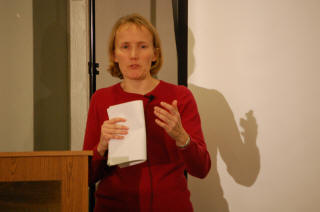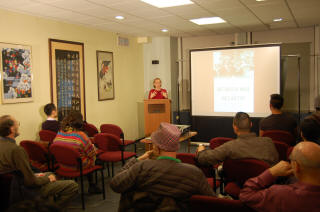
Charlotte Brooks is Professor of History at Baruch College, CUNY. A scholar of race, immigration, and urban history, she has published widely on Asian American history, especially Chinese American history.
Her newest book is American Exodus: Second Generation Chinese Americans in China, 1901-1949 (University of California Press, 2019). In the first decades of the 20th century, almost half of the Chinese Americans born in the United States moved to China—a relocation they assumed would be permanent. At a time when people from around the world flocked to the United States, this little-noticed emigration belied America’s image as a magnet for immigrants and a land of upward mobility for all. Fleeing racism, Chinese Americans who sought greater opportunities saw China, a tottering empire and then a struggling republic, as their promised land. American Exodus is the first book to explore this extraordinary migration of Chinese Americans and how it shaped Sino-American relations, the development of key economic sectors in China, the character of social life in its coastal cities, debates about the meaning of culture and “modernity” there, and the U.S. government’s approach to citizenship and expatriation in the interwar years.
Dr. Brooks is also the author of two other books. Between Mao and McCarthy: Chinese American Politics in the Cold War Years (University of Chicago Press, 2015) is a comparative study of Chinese American political activism in New York and San Francisco between World War Two and the late 1960s. Alien Neighbors, Foreign Friends: Asian Americans, Housing, and the Transformation of Urban California (University of Chicago Press, 2009), uses Asian Americans’ experiences with housing discrimination to explore the startlingly rapid racial transformation of mid-century urban California. It received an honorable mention for the Organization of American Historians’ 2010 Frederick Jackson Turner Award.
Brooks’ articles have appeared in numerous journals, including the Journal of American History, the Journal of American Ethnic History, and the Journal of Urban History, and her work has also been reprinted in The Best American History Essays.



